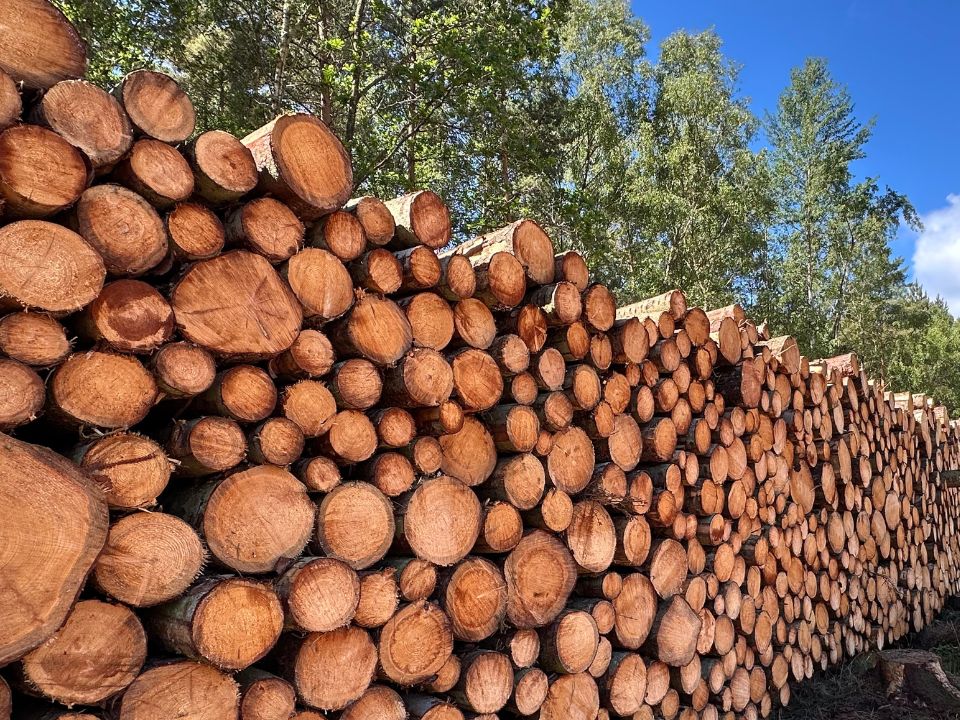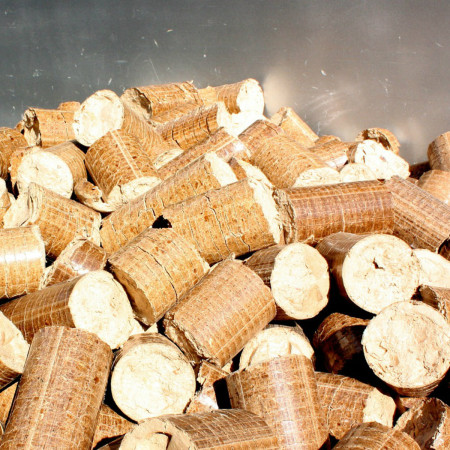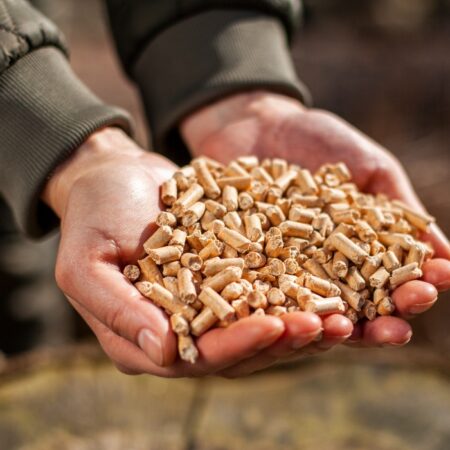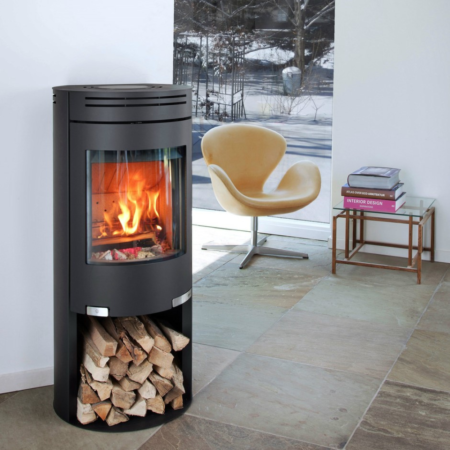Whether you’ve just become a wood stove owner or have had one for years, you’ve likely considered which type of fuel is best. For some, wood briquettes are entirely off-limits because they don’t have the same aesthetic appeal as traditional firewood. For others, the priority is finding the most affordable and efficient heat source.
Calorific value and efficiency
The calorific value indicates how much heat is released during combustion and serves as an indicator of the fuel’s efficiency. In general, all wood has the same calorific value, but several factors can affect it, such as the wood’s moisture content and density. Depending on the type of wood you choose, firewood typically has a density of around 600-700 kg/m³ and a moisture content of about 15-20%. In contrast, wood briquettes have a moisture content of 6-10% and a higher density than firewood. As a result, wood briquettes have a higher calorific value, making them more efficient.
Economic considerations
The price of firewood varies based on the type of wood, moisture content, and place of purchase. Firewood may appear to be the cheapest option per kg, but due to its high moisture content and lower density, you will need more firewood to achieve the same amount of heat as with wood briquettes.
So, even though wood briquettes are often more expensive per kilogram than firewood, the increased heat efficiency can result in lower overall heating costs.
Usability
When choosing between firewood and wood briquettes, it’s important to consider usability. Firewood usually requires more effort to ignite and maintain a steady fire, whereas wood briquettes are simpler to light and manage. Additionally, firewood generates more ash than wood briquettes, leading to more frequent cleaning of the stove and chimney. However, you should be mindful of the quality of the wood briquettes, as it can vary. Some briquettes crumble easily, which can result in significant cleaning efforts in the stove and the room. You can read more about this here.
In addition to ignition, it’s also important to consider how much space you have for storing your fuel. Wood briquettes are compact, easy to stack, and can typically be stored indoors as they are packaged and protected against moisture. In contrast, firewood requires an outdoor, dry, ventilated space to prevent the wood from becoming damp and unusable.
Furthermore, aesthetics and comfort can play a significant role in choosing your fuel. Firewood provides an authentic experience with its characteristic crackling sound, aroma, and natural flames, which many people appreciate. In contrast, wood briquettes offer a more uniform and modern burning experience with less noise and scent.
So, what’s the best choice for you?
Whether you prefer the cosy atmosphere and crackling sounds of split firewood or a more convenient and efficient burn with wood briquettes is a matter of personal preference. The most important thing when choosing fuel is that it suits your needs.
If you choose to burn with firewood, it’s important to set requirements for your wood and select the right type of wood. Not all firewood is the same, and there can be a significant difference in quality. Read more about which type of firewood you should choose.
SOURCE:
https://www.viden.aduro.dk/viden-og-gode-raad/braende/fordele-ved-at-fyre-med-traebriketter/
https://www.jyskbiobrandsel.dk/braendvaerdi-trae
https://www.fyr-selv.dk/braendeguide/braende-her-far-du-mest-braendvaerdi-for-pengene




